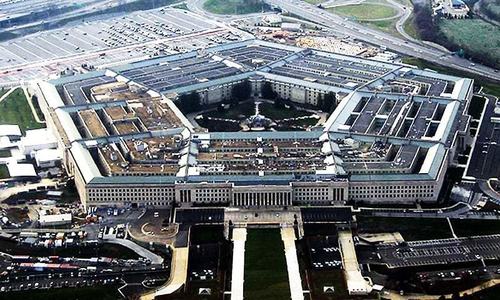WASHINGTON: The US Department of Defence has awarded a $284.6 million contract to Lockheed Martin to produce infrared target sight systems for the US Navy and Pakistan, the Pentagon announced on Friday.
The system will be used for the AH-1Z Cobra attack helicopters, which have proved very effective in combats against militants, particularly in difficult terrains. In the US, the AH-1Z Cobra attack helicopter is used by US Marine Corps expeditionary forces.
The TSS incorporates a third-generation forward-looking infrared sensor that provides target sighting in day, night, or adverse weather conditions.
A Pentagon press release describes the TSS system as a large-aperture mid-wave forward-looking infrared sensor with a laser designator/rangefinder turret. It provides the capability to identify and laser-designate targets at maximum weapon range, significantly enhancing platform survivability and lethality.
The company’s Orlando-based missile and fire control unit will produce the sight system in Orlando and Ocala, Florida, through January 2022 for the US Navy and Pakistan under the foreign military sales portion of the award, the Pentagon said.
The contract has a base value of $150.96m but its accumulative cost would go up to $284.6m. The government of Pakistan will pay about 12 per cent of the total cost through an arrangement with the United States under the Foreign Military Sales programme.
In January, Lockheed Martin received a smaller contract of $14m to provide the same target system for Pakistan.
The contracts include software development and testing, system modification, and installation requirements to integrate the TSS into the Cobra helicopters. The TSS provides target information and tracking data for the helicopter, in addition to passive targeting for integrated weapons.
Work on the first contract, performed in Florida, would be completed by December 2017.
Although the United States and Pakistan were once close allies, relations between the two countries strained in 2011, when the United States discovered and eliminated Osama bin Laden at his compound in Abbottabad.
Earlier this year, US lawmakers stalled a deal for providing eight F-16 aircraft to Pakistan after accusing Islamabad of continuing to support the Afghan Taliban.
The US State Department had approved the sale in February but in May it informed Pakistan that it could not provide financial support for buying the aircraft because of congressional restrictions. The lawmakers had stopped the administration from using the so-called Foreign Military Financing (FMF) for assisting Pakistan.
The State Department, however, advised Pakistan to use its national funds if it still wanted to buy the planes. This would have required Islamabad to pay $700m instead of the original $270m, increasing the cost two-and-a-half times.
Published in Dawn December 24th, 2016














































